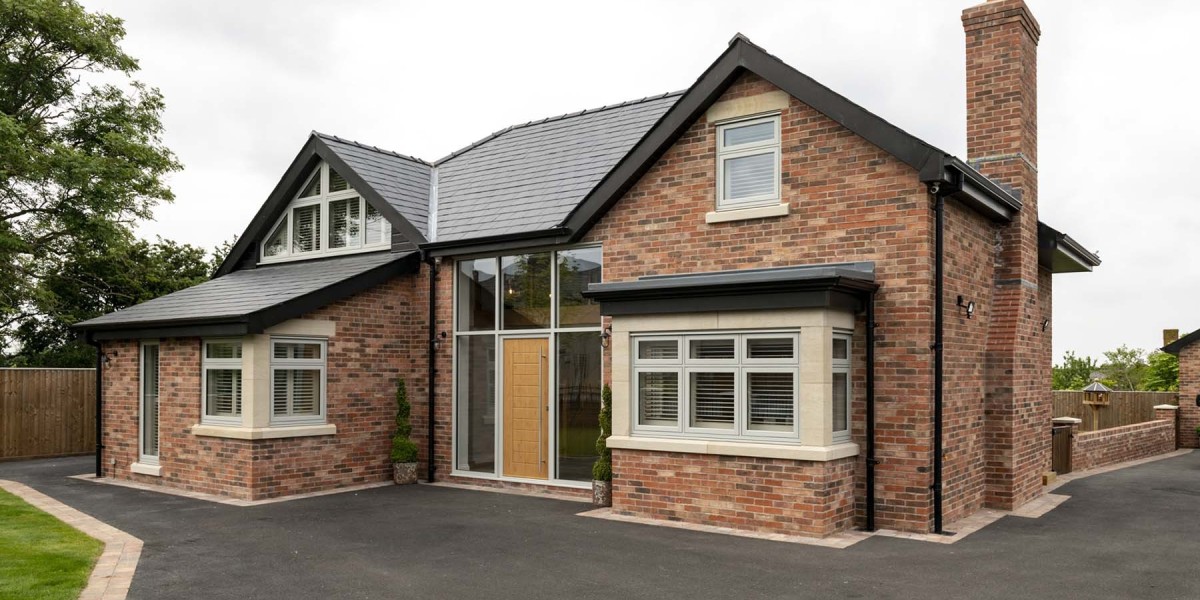When it comes to residential construction, the size and scope of a project are often considered the most critical factors in determining costs. But here's the truth: size and scope alone don't dictate accuracy in construction estimates. Instead, what truly matters is the method, expertise, and tools used to generate those estimates. Whether you're building a compact cottage or a sprawling estate, accurate estimates are possible—and essential—no matter the project's scale.
In this article, we explore why accurate residential construction estimating is not dependent on the size or scope of a project, and what factors actually lead to precision in budgeting and planning.
The Myth: Bigger Project = Bigger Estimating Challenge
It’s a common misconception in the construction world: the bigger the build, the harder it is to estimate accurately. While large-scale projects may introduce complexity, the principles of estimation remain the same regardless of project magnitude.
In fact, small projects can be just as prone to estimation errors if key data is overlooked. For instance, a home addition might seem simple, but failing to factor in labor, permits, or unforeseen structural adjustments can lead to significant budget overruns. On the other hand, a large custom home can be estimated precisely with the right systems and expertise in place.
The Foundation of Accurate Estimating: Process Over Project Size
Whether it’s a 500-square-foot renovation or a 5,000-square-foot new build, the accuracy of an estimate relies more on process than size. Here’s what truly contributes to reliable residential construction estimating:
1. Comprehensive Data Collection
Every good estimate starts with thorough data. This includes:
Detailed architectural drawings
Engineering specifications
Material and finish selections
Site conditions
Local labor and material rates
Without these components, even a small project can go off-track. With them, even the most complex builds can be estimated to a high degree of accuracy.
2. Use of Professional Estimating Tools
Gone are the days of manual takeoffs with rulers and calculators. Today’s estimators use digital takeoff software, cost databases, and AI-powered estimating tools that significantly reduce human error.
These technologies allow estimators to:
Measure quantities precisely
Reference up-to-date cost libraries
Run "what-if" scenarios
Include real-time material pricing
This tech-neutral approach means the estimator can handle both small and large projects with equal precision.
3. Experience & Industry Knowledge
An experienced estimator knows what to look for—where projects tend to run over, what hidden costs to expect, and how to account for regional pricing differences.
For example:
Are there demolition costs?
Are there high-end finishes involved?
Does the site require special prep?
Are there seasonal labor shortages in the region?
These are the types of insights that ensure estimates stay accurate, regardless of project scope.
Why Accurate Estimates Matter Equally for All Projects
Budget Management
Every homeowner or builder operates with a budget, whether it’s $50,000 or $5 million. Inaccurate estimates can jeopardize financing, delay construction, or derail projects entirely.
For smaller projects, every dollar counts. A 10% cost overrun on a $75,000 home remodel means finding an extra $7,500—a potentially major issue for homeowners. Meanwhile, on larger projects, even a 1% discrepancy can equal tens of thousands in lost funds.
Project Scheduling
Accurate estimates influence not only budget but also timeline planning. Misjudging the amount of labor or material lead times can push a completion date back by weeks or months. Estimating time and resources accurately is key to keeping both large and small projects on schedule.
Client Confidence
Inaccurate estimates hurt credibility. Whether you're a contractor, builder, or estimator, delivering a realistic and reliable forecast builds trust with clients and stakeholders. Repeat business, referrals, and long-term partnerships all depend on that trust.
How Professional Estimators Make Size Irrelevant
Professional estimating services have systems in place to treat every project with the same level of scrutiny and care—no matter its size or complexity.
Some of the ways they do this include:
Standardized Estimating Templates: Ensuring no key elements are forgotten.
Historical Data Analysis: Leveraging data from previous jobs to predict current ones.
Geographical Cost Indexing: Accounting for regional fluctuations in labor/material costs.
Collaborative Review: Involving architects, contractors, and engineers to refine assumptions.
These practices level the playing field for small and large projects alike, ensuring every homeowner gets a fair, accurate, and actionable estimate.
Real-World Examples: Size Doesn’t Predict Accuracy
✅ Accurate Small Project
A kitchen remodel estimated at $35,000 was completed for $34,500—well within budget—because the estimator:
Factored in appliance backorders
Accounted for tile waste
Included subcontractor minimum charges
❌ Inaccurate Large Project
A 3,800-square-foot home estimated at $620,000 ran $80,000 over budget. Why?
The estimate missed code-related electrical upgrades
Poor coordination between framing and plumbing trades
No contingency plan for fluctuating lumber costs
The takeaway? It’s not the size that determined the outcome—it’s the quality of the estimating process.
When to Bring in the Pros
If you're planning a residential construction project—big or small—consider hiring a professional estimating service when:
You lack time or in-house expertise
Your project involves custom features or structural changes
You're seeking investor or bank approval
You want multiple bids and need a neutral baseline
Investing in an expert estimate upfront can save you thousands later.
Conclusion: It’s Not the Size—It’s the Strategy
Construction estimating isn’t about size. It’s about strategy, accuracy, and foresight. Whether you're building a cozy bungalow or a luxury villa, a professionally prepared estimate ensures you're not flying blind.
By focusing on the process rather than the scope, you position yourself for success. So next time someone says “it’s a small job, we’ll figure it out as we go,” remember: every project deserves precision—because every dollar counts.
Need help estimating your next residential construction project? Turn to trusted professionals who understand that accuracy isn’t about size—it’s about getting it right.








